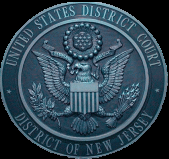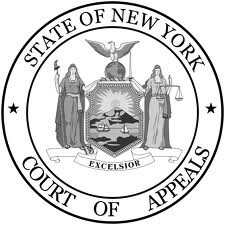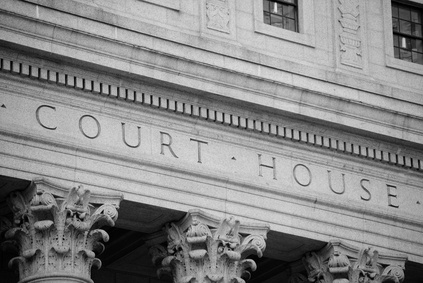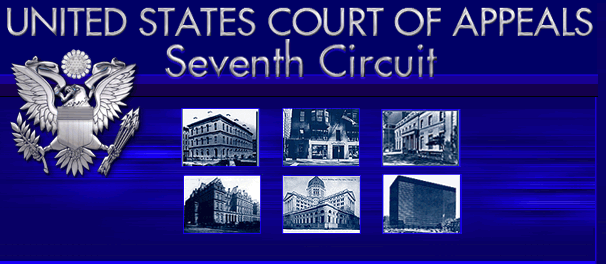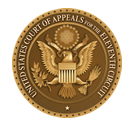The U.S. Bankruptcy Court for the Southern District of Florida recently denied a mortgagee’s motion to reopen a Chapter 7 case to compel the surrender of real property, due to a five-year delay in filing the motion. In so ruling, the court agreed with an earlier ruling from the U.S. Bankruptcy Court for the Middle District of Florida (In re Plummer, 513 B.R. 135 (Bankr. M.D. Fla. 2014)), distinguishing “surrender” from “foreclosure,” and holding that a creditor cannot use the Bankruptcy Code to circumvent the obligations imposed by state law. A copy of the opinion in In Re Kourogenis is available…
Posts published by “Thomas Dominczyk”
Tom Dominczyk is based in Maurice Wutscher's New Jersey office and supports the firm's matters in its New York and Pennsylvania offices, practicing in the firm's Commercial Litigation, Consumer Credit Litigation and Bankruptcy groups. Tom has successfully represented financial institutions and law firms throughout the country for claims filed under the Fair Debt Collection Practices Act, Fair Credit Reporting Act and various state consumer protection statutes. In addition to his litigation practice, Tom represents national, regional and local creditors in a variety of bankruptcy matters ranging from the defense of adversary actions to complex non-dischargeability litigation and preference defenses. He served as a Judicial Clerk to the Honorable Graham T. Ross, P.J.F.P., Superior Court of New Jersey, Somerset County. For more information, see https://mauricewutscher.com/attorneys/thomas-r-dominczyk/
The U.S. District Court for the District of New Jersey recently held that New Jersey’s 20-year statute of limitations for residential foreclosures applied to a re-filed foreclosure action, reversing a bankruptcy court’s ruling that the shorter six-year statute of limitations period applied. A copy of the opinion is available at: Link to Opinion. The borrower obtained a $520,000 mortgage loan in February 2007. The Mortgage and Note listed March 1, 2037 as the maturity date. The borrower defaulted in July 2007, and a foreclosure action was filed. However, the foreclosure action was later dismissed for want of prosecution, and then…
The Court of Appeals of New York recently held that a mortgage loan repurchase action for breach of representations and warranties accrued when the representations and warranties were made, and the obligation to cure and repurchase was not a separate and continuing promise of future performance. A copy of the opinion is available at: Link to Opinion. The sponsor of a residential mortgage-backed securities trust purchased 8,815 mortgage loans from third-party originators. This pool of loans was sold to an affiliate, known as a “depositor,” pursuant to a Mortgage Loan Purchase Agreement (MLPA) between the sponsor and the depositor dated…
The New York Court of Appeals recently confirmed that, under New York state law, a loan servicer had standing to foreclose on delinquent borrowers based only upon the servicer’s demonstrated possession of the note evidencing the borrowers’ loan since the time the foreclosure action was filed. The Court also held that, although the loan servicer’s affidavit set out sufficient facts to show exclusive possession and control of the note prior to the date the foreclosure action was filed, the affidavit would have been better and clearer if it had also included facts describing how the servicer came into possession of…
Two years ago, in Simon v. FIA Card Services, N.A., the Third Circuit held that alleged violations of the FDCPA resulting from conduct in a bankruptcy case were not precluded by the Bankruptcy Code. At issue was whether the defendants engaged in false, misleading or deceptive conduct in connection with their service of a subpoena for a Rule 2004 examination. The certification of service on the subpoenas indicated service both directly on the plaintiffs and on their attorney whereas they were actually only served on the attorney. In addition, the location provided for the examination was improper under the bankruptcy…
Like the 80 inches of snow that pummeled Buffalo this week, the crusade against time-barred debt continues to hammer the collection industry. Today the United States Court of Appeals for the Seventh Circuit denied a petition for leave to file an interlocutory appeal in the matter of Patrick v. PYOD, LLC. Earlier this summer, a judge sitting in the United States District Court for the Southern District of Indiana denied a collector’s motion to dismiss an FDCPA complaint based on the filing of a proof of claim on a debt that was beyond the statute of limitations. Relying on Randolph v.…
If I did not read this opinion I never would have believed it. In one of the greatest examples of baiting a collector into a violation of the FDCPA, a plaintiff in Missouri decided he was not going to wait for a collector to call him and instead called the collector himself to induce a 1692c(a)(2) violation. According to the opinion, “In mid-June 2014 plaintiff retained an attorney to represent him regarding his debts, including those which defendants are attempting to collect from him. Shortly after retaining legal counsel plaintiff phoned defendant MRG to ask about the debt and to inform…
With its decision in Crawford v. LVNV Funding, LLC still leaving a bad taste in the collection industry’s mouth, the Eleventh Circuit has provided some solace to the financial services industry with its decision in Mais v. Gulf Coast Collection Bureau, Inc., No. 13-14008 (11th Cir. Sept. 29, 2014). The key holding was the reversal of the district court’s interpretation of “prior express consent” under the Telephone Consumer Protection Act. Plaintiff sued the medical service provider and its debt collection agent for making autodialed or prerecorded calls to his cellular telephone in violation of the TCPA. His wife had given his cellular telephone…
Filing a lawsuit to collect a time-barred debt does not violate the Fair Debt Collection Practices Act according to a June 30 decision from a New Jersey state trial court. The decision, Midland Funding v. Thiel, involved a collection action to recover the unpaid balance of a Home Depot credit card. The law firm representing the creditor filed suit under New Jersey’s six-year limitation period for contracts, which has been applied to countless credit card debts. The trial court dismissed the claim reasoning that this particular credit card could only be used to make purchases at Home Depot. Four Year Limitations…
Addressing what it termed “a deluge [that] has swept through U.S. bankruptcy courts of late” the 11th Circuit Court of Appeals in Crawford v. LVNV Funding, LLC held that filing a proof of claim on time barred debt is conduct that violates the Fair Debt Collection Practices Act (“FDCPA”). Background The last payment on the underlying debt was made in 2001 and subject to Alabama’s three year statute of limitations. The debtor filed for relief under the Bankruptcy Code in 2008 during which the current owner of the debt filed a proof of claim. Neither the debtor nor the Chapter…
While there are many reported cases discussing attorney fee awards to successful plaintiffs under the Fair Debt Collection Practices Act, fee awards for defendants who had to endure bad faith complaints are few and far between. Recently, one of these rare opinions surfaced in the Eastern District of Missouri in Nguyen v. Capital One Bank, (USA), N.A., 2014 U.S. Dist. LEXIS 46716 (E.D. Mo. Apr. 4, 2014). The underlying putative class action complaint was filed in state court and removed by the defendants who then filed a motion to dismiss. The District Court granted the unopposed motion to dismiss and…


